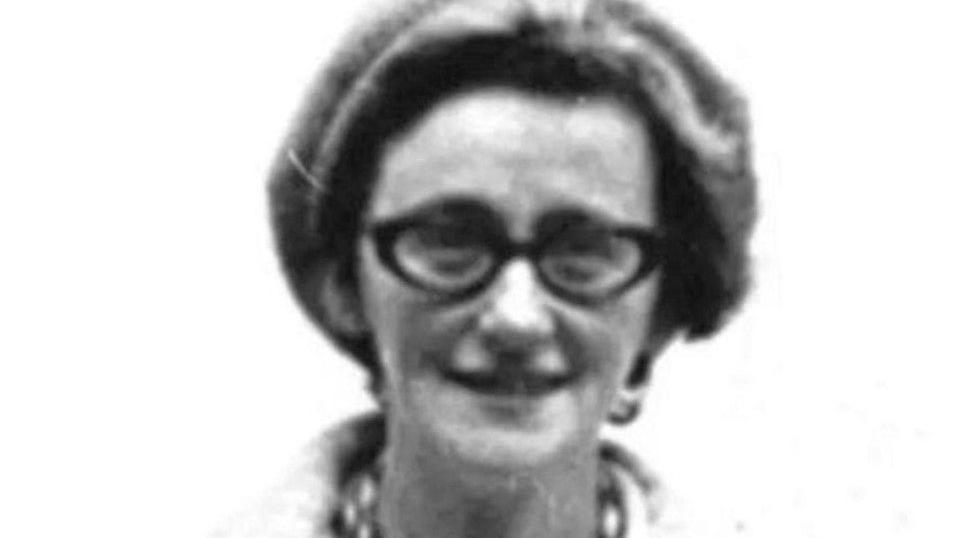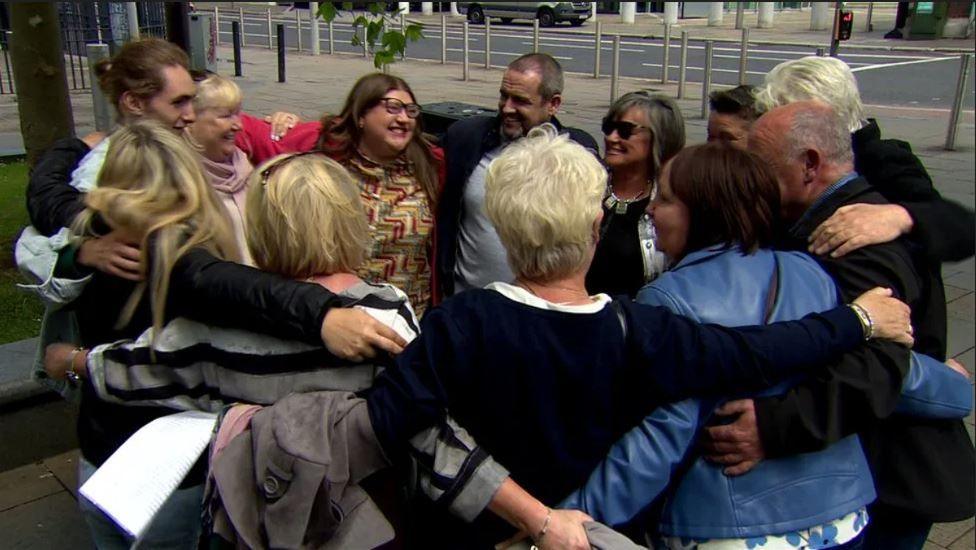Kathleen Thompson family lose case over prosecution

Kathleen Thompson was shot dead in her back garden in Creggan in 1971
- Published
The family of a woman shot dead by the Army more than 50 years ago has lost a legal battle to fast-track a decision on any potential prosecution.
Kathleen Thompson was fatally wounded outside her home as troops withdrew from the Creggan area of Londonderry in November 1971.
In June 2022, a coroner ruled she had been shot by a serviceman referred to as Soldier D in circumstances which were not justified.
The coroner subsequently referred the case to the director of public prosecutions (DPP).
The victim's family was informed last year that any potential prosecution in relation to her death would not be possible until a police investigation had concluded.
One of Ms Thompson's six children, William Thompson, challenged the DPP’s decision not to exercise a discretionary power which would require police to prioritise its investigation.
Judges in the Court of Appeal ruled on Monday that the prosecuting authority had acted lawfully.
The death of Ms Thompson is among more than 1,000 historical cases being reviewed by the PSNI’s Legacy Investigation Branch (LIB).
Under the terms of the UK Government’s controversial new Troubles Legacy Act, criminal investigations into conflict-related deaths in Northern Ireland will be shut down next month.
Judicial review proceedings were issued after the DPP concluded there were no exceptional circumstances to warrant referring the case to the chief constable under the terms of the Justice (Northern Ireland) Act 2002.
Mr Thompson claimed the decision was irrational and amounted to a misdirection in law.

The Thompson family was told in 2022 the killing was unjustified
His lawyers argued there were exceptional circumstances and that prosecutors had wrongly identified further lines of inquiry for police without making a formal referral.
The Public Prosecution Service insisted it was a reasonable decision in circumstances where police intend to further investigate in due course and should be allowed to independently manage their resources.
An appeal was mounted after the High Court held that the DPP is legally entitled to wait for the outcome of the LIB process.
Backing those findings, Lord Justice McCloskey also identified no legal basis to suggest any referral would even speed-up inquiries.
Dismissing the appeal, Lord Justice McCloskey expressed sympathy with the Thompson family’s protracted legal fight.
“Their experiences bear eloquent testimony to the multiple challenges and complexities presented by the subject of so-called ‘legacy’ deaths in this jurisdiction,” he added.
“However, applying the relevant legal rules and principles objectively, we conclude that the DPP did not act unlawfully.”
'Unjustified'
In 2022, a coroner ruled that a soldier was unjustified in firing the shots that killed Ms Thompson more than 50 years ago.
An inquest in 1972 into her death returned an open verdict and in 2013 the attorney general ordered a fresh inquest.
This started in 2018, but was adjourned to allow time to trace three soldiers and resumed in 2021.
Mrs Justice Sandra Crawford ruled the fatal shots were fired by an individual known as Soldier D as the Army withdrew from the South Way area of Creggan following an arrest operation.
The coroner said Ms Thompson had gone to the rear of her home in Rathlin Drive and was banging a bin lid or another object on the ground to warn people of the Army's presence when she was shot.
She said Soldier D, a member of the Royal Green Jackets, claimed he had opened fire after he was fired upon, and was thus acting to protect himself and his colleagues.
The coroner said she could not be satisfied that Soldier D held an honest belief he was under fire.